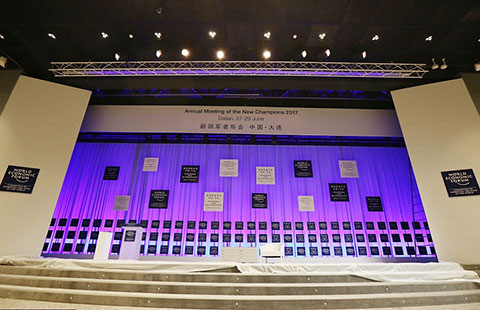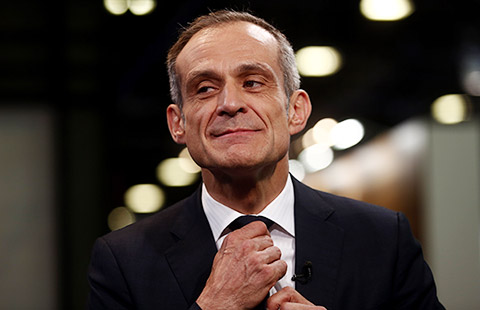Industrial firms show healthy profit growth
China's big industrial firms are expected to see stable profit growth in coming months, after a double-digit year-on-year increase in cumulative profit from January to May laid a solid foundation for the year.
The healthy profit growth rates reflected in the latest official data for the year stem mainly from producers' primary businesses, even as enterprises face rising costs and a slightly lower producer price index, a gauge measuring prices of good sat the factory gate, according to Gao Ming, an analyst with China Merchants Securities.
Industrial companies with annual sales of more than 20 million yuan ($2.94 million) posted 2.9 trillion yuan in profits in the first five months, up 22.7 percent cumulatively year-on-year, according to the National Statistics Bureau.
The stunningly high aggregated growth rate in the profit of industrial firms in 2017 resulted from industrial upgrading and a rebound this year combined with an extremely low base of growth in 2016.
In May alone, profits of major industrial firms rose 16.7 percent year-on-year, up from 14 percent in April, data showed.
Gao said profits from companies' main businesses played a major role in overall profit growth.
Better investment returns also contributed, according to NBS statistician He Ping, citing 32.5 percent year-on-year growth in May, 2.1 percentage points higher than in the first four months.
Favorable performance in the first five months "laid a solid foundation" for achieving the annual GDP growth target of around 6.5 percent, according to the NBS.
More coordinated efforts in implementing reforms in key areas will help the economy keep its growth momentum, according to Liang Hong, chief economist with China International Capital Corp.
The nationwide push to reduce debt and cut overcapacity is gradually bearing fruit in boosting industrial companies' profit ability as corporate debt is cut, said Wang Qing, a senior analyst with Beijing-based Golden Credit Rating International Co.
"Efforts to cut over capacity in the past two years have significantly speeded up the process of lowering corporate debt," said Wang. "We expect the structure of assets and liabilities of industrial enterprises to be further optimized and improved with more effort to stem asset bubbles and guide money into the nonfinancial sector."
Data from the Ministry of Finance shows the debt level of major enterprises was 56.1 percent at the end of May, down by 0.7 percentage points compared with the previous month.
"Concerns about a possible economic slowdown in the second half of this year might come from tightening supervision in the financial sector, but the negative impact is rather limited," Gao said.
Downward pressure will be balanced by the improvement of consumer demand and the expansion of the service sector.



















